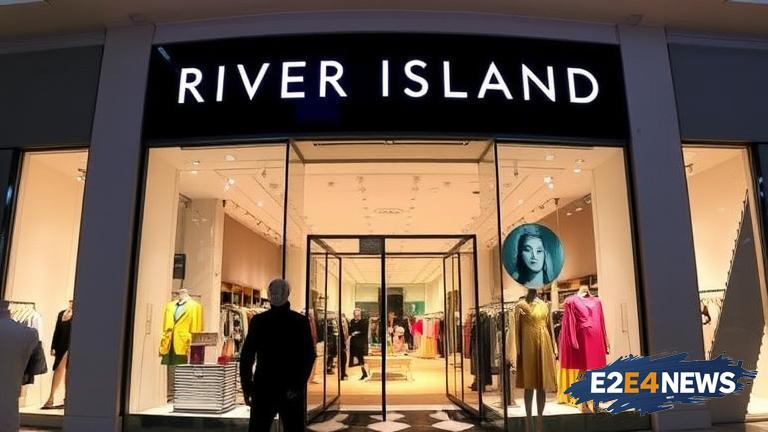River Island, a well-known high street fashion brand in the UK, is currently navigating through challenging financial times. The company has announced that it is reviewing its store portfolio, which has led to speculation about potential store closures. According to recent reports, as many as 33 River Island stores are at risk of being closed down. This news has come as a shock to both employees and loyal customers of the brand, who are worried about the impact this could have on local communities and the retail industry as a whole. The potential closures are attributed to the company’s efforts to reduce costs and adapt to the changing retail landscape, which has seen a significant shift towards online shopping in recent years. River Island has been a staple of UK high streets for decades, offering a wide range of clothing and accessories for men, women, and children. The brand has a strong reputation for its trendy and affordable fashion, making it a favorite among many shoppers. However, like many other brick-and-mortar retailers, River Island has been facing increasing competition from online retailers and struggling to maintain profitability. The company has been working to revamp its business model and improve its online presence, but it appears that these efforts may not be enough to save all of its physical stores. The potential closure of 33 stores would not only result in job losses but also leave gaps in high streets across the UK, which could have a negative impact on local economies. River Island has not yet confirmed which specific stores are at risk, but it is expected that an announcement will be made in the coming weeks. In the meantime, customers and employees are left waiting anxiously to learn the fate of their local River Island store. The news of potential store closures has sparked a wider debate about the future of high street retail in the UK and the challenges faced by traditional brick-and-mortar stores in the digital age. As the retail industry continues to evolve, it is likely that we will see more store closures and consolidations, as companies strive to stay competitive and relevant. River Island’s situation serves as a reminder of the importance of adapting to changing consumer habits and preferences, as well as the need for retailers to invest in their online platforms and customer experience. Despite the challenges it is facing, River Island remains a beloved brand, and many are hoping that it will be able to find a way to navigate its current difficulties and emerge stronger in the future. The company’s commitment to its customers and employees will be crucial in the coming months, as it works to address its financial struggles and secure its place on the UK high street. In conclusion, the potential closure of 33 River Island stores is a significant development in the UK retail sector, with far-reaching implications for employees, customers, and local communities. As the situation continues to unfold, it is essential to consider the broader context and the challenges faced by traditional retailers in the digital age.
